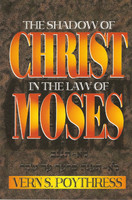
EBOOK Christ and the Law: Antinomianism at the Westminster Assembly (Gamble)
- Affordable shipping (free $100+)
- 100,000+ customers served
- "Wonderful books, great prices, awesome customer service." – Ivan, IL
Description
Antinomianism was the primary theological concern addressed by the Westminster Assembly. Yet until now, no monograph has taken up the specific concerns related to antinomianism and the famous assembly. In Christ and the Law, Whitney G. Gamble sketches the rise of English antinomianism in the early decades of the 1600s to the assembly’s first encounter with it in 1643, summarizing the main theological tenets of antinomianism and examining the assembly’s work against it, both politically and theologically.
Along the way, Gamble analyzes how the assembly’s published documents addressed theological issues raised by antinomianism on matters of justification, faith, works, and the moral law. By detailing the assembly’s perspective on antinomianism, Gamble’s book helps further our understanding of the formation, nature, and growth of Reformed theology in seventeenth-century England.
Endorsements
“Luther compared his antinomian opponents to a drunk who, after falling, got back up on the horse only to fall off on the other side. Whitney Gamble explores the antinomian controversy at the time of the Westminster Assembly with precision as well as narrative skill. This is an essential book for understanding antinomianism then—and now.”
—Michael Horton, J. Gresham Machen Professor of Systematic Theology and Apologetics, Westminster Seminary California
“In this groundbreaking contribution, Dr. Gamble sheds new light on the shape and content of the Westminster Confession of Faith as it sought to repudiate antinomian claims. Drawing upon fresh documentary evidence, her work provides an indispensable point of reference for our understanding of the assembly in its mid-seventeenth-century context. This is both an accessible and accomplished study.”
—David Fergusson, professor of divinity and principal of New College, University of Edinburgh
“The debate about the role of the law in the Christian life was central to the work of the most important religious gathering in seventeenth-century England. This outstanding book is the first to reconstruct the means by which Westminster Assembly divines picked their way through the moral panic about antinomianism to offer new clarity on the boundaries of Reformed identity.”
—Crawford Gribben, professor of early modern British history at Queen’s University Belfast
About the Author
Whitney G. Gamble (PhD University of Edinburgh) is associate professor of biblical and theological studies at Providence Christian College in Pasadena, California. She has written several articles as well as a chapter on the theology of the Westminster Confession of Faith for a forthcoming multivolume History of Scottish Theology (Oxford University Press, 2019). Dr. Gamble is a regular contributor on the White Horse Inn radio show.





